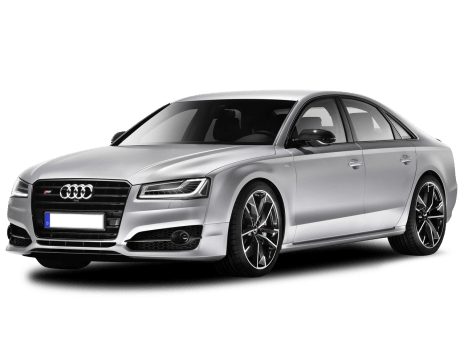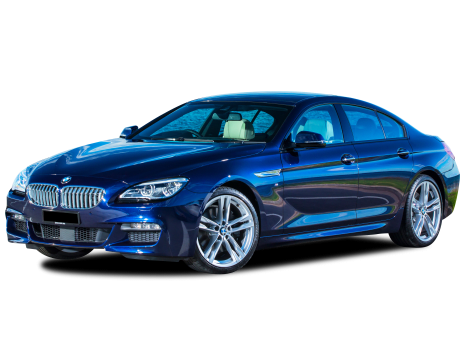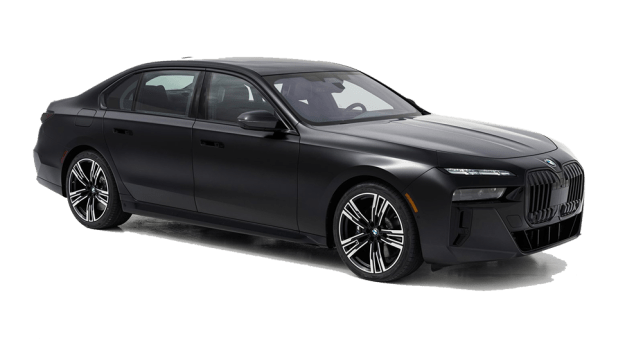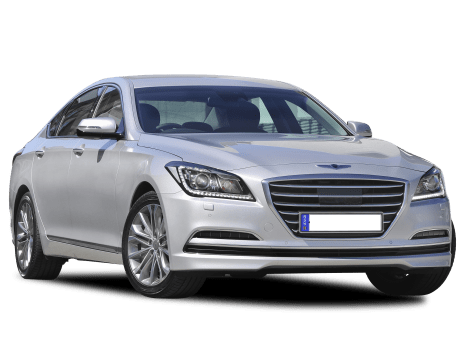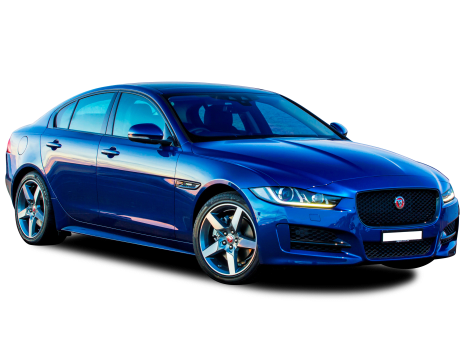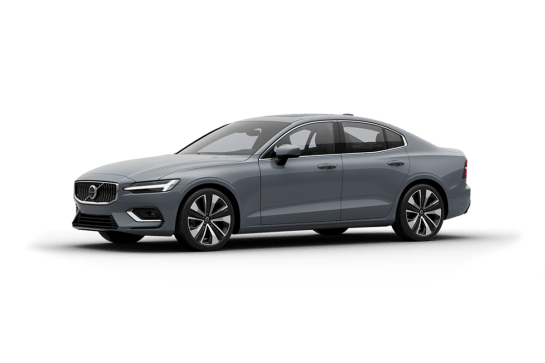
Rolls-Royce Ghost VS Audi S6
Rolls-Royce Ghost
Likes
- Road presence
- Interior luxury
- Gobs of power
Dislikes
- Price
- Options prices
- Not being rich
Audi S6
Likes
- Executive style
- Improved value
- Boy-racer performance
Dislikes
- Not SUV practical
- A touch thirsty
- Substandard warranty
Summary
Rolls-Royce Ghost
It’s finally happened: Rolls-Royce has become so divorced from the everyday world of common folk that it's no longer even sharing the previously agreed meanings of words. Rolls has its own meanings, possibly its own language, which must be spoken with a plum on the tongue.
They’ve been heading here for a while. For example, at Rolls, “affordable” means the car we're driving today, the Rolls-Royce Ghost Series II, which is yours for just $680,000 (an indicative price, bumping to $800K for the Black Badge). And “iconic British marque” means, obviously, “BMW bought us in 2003, so there might be some German bits”.
It turns out that “driver-focused” means something different at Rolls-Royce, too. Thanks to a smattering of chassis innovations, Rolls says this updated 2025 Ghost is “the most driver-focused V12 Rolls-Royce ever”. Which is “a side of Ghost’s character that our clients increasingly and enthusiastically embrace”.
Read more about
Don’t fall for it. The Ghost’s extra focus is not actually very focusy, and its additional dynamism is really only more dynamic in the way that a bed that could corner at all would be more dynamic than a normal bed. None of that matters.
The reason it doesn’t matter is because the Ghost Series II is wonderful. Indeed, it is very nearly perfect. Which is a word that even Rolls won’t quibble over.
| Safety rating | — |
|---|---|
| Engine Type | — |
| Fuel Type | — |
| Fuel Efficiency | —L/100km |
| Seating | — |
Audi S6
Most buyers don’t care for sedans these days, but those in the premium market are still spoilt for choice, with new model after new model being launched.
The latest on offer is the new Audi S6, which once again attempts to mix executive style with boy-racer performance.
With its predecessor’s 4.0-litre twin-turbo V8 succeeded by an engine that is 1.1 litres and two cylinders short, does it still serve up enough bang for your back?
Of course, the only way to find out is to put the new S6 sedan to test, so that’s exactly what we did. Read on.
| Safety rating | |
|---|---|
| Engine Type | 2.9L turbo |
| Fuel Type | Hybrid with Premium Unleaded |
| Fuel Efficiency | 8.4L/100km |
| Seating | 5 seats |
Verdict
Rolls-Royce Ghost8/10
In a disruptive era when the coachbuilder has pivoted to SUVs like the Cullinan, a sort of London black cab that’s been dipped in opulence, and succeeds despite itself, and the brand’s grand, million-dollar EV, the Spectre, the Ghost is a safe and familiar space.
A beautiful, long, broad, immaculate land boat. It’s a space Rolls inhabits with relish.
The Ghost Series II feels nothing like a track-day option when you’re behind the wheel. But it might do if you were stepping out of a Phantom. Or a Cullinan. Or a Wraith. Especially if you’re stepping out of the back doors.
It’s the perfect driver’s car. As long as all your other cars are also Rolls-Royces.
Audi S68.4/10
We adore the new S6 sedan. It looks great, feels comfortable and goes like stink all at the same time. What’s not to like?
It also helps that it is relatively good value, safe and practical by large-sedan standards, so it’s a bit of a no-brainer.
But will buyers be quick to dismiss the new S6 sedan because it’s not a more practical SUV? Time will tell, but we hope not.
Does the new Audi S6 sedan represent the best mix of executive style and boy-racer performance? Tell us what you think in the comments below.
Design
Rolls-Royce Ghost
Yes, its exterior is more monolithic than before. The previous iteration was hardly fiddly, but the (apparently client driven) evolution here edges ever so gracefully towards what Rolls-Royce might secretly think of as brutalism.
The Ghost Series II’s generous 2148mm width is further emphasised up front, stretched across its upright prow, with slimline headlights adding definition and — surprisingly — a touch of villainy.
New, Spectre-inspired tail lamps and a discreetly inscribed double ‘R’ monogram add a reserved flourish from behind, and buyers can choose from two new 22-inch, nine-spoke wheel designs.
It’s subtle, no doubt. But it’s also impeccable.
Audi S69/10
To these eyes, the new S6 sedan is very attractive, albeit not outlandish, in keeping with its executive focus.
Up front, the subtly aggressive S body kit immediately comes into frame, with the bumper sporting sinister-looking side air intakes.
And, of course, there’s Audi’s signature Singleframe, which is not only large and in charge, but also finished in gloss-black, like many of the S6 sedan’s exterior design elements.
Below the heavily creased bonnet, the HD Matrix LED headlights look both angry and sophisticated, with their integrated LED daytime running lights (DRLs) providing a crisp signature.
Around the side, the S6 sedan goes about its business quietly, but its blistered wheelarches do add some bulk and help to accentuate its strong shoulder line.
And then there are the thick skirts and 21-inch alloy wheels (with a space-saver spare), which have a sporty twin five-spoke design. It’s all very classy.
Speaking of which, the rear end is arguably the S6 sedan’s best angle thanks to its wicked LED tail-lights, which have a segmented signature.
The chunky bumper below incorporates a diffuser element that houses the quad exhaust tailpipes, while a blink-and-you’ll-miss-it bootlid spoiler rounds out the look.
Inside, the S6 sedan is a technological tour de force, with 10.1- and 8.6-inch touchscreens dominating its centre stack. The former is responsible for most of Audi’s latest multimedia system’s functions, while the latter takes care of the climate controls.
This set-up works pretty well, although a few too many taps are required for certain functions, and then there’s the issue of the glass display coverings, which are absolute fingerprint magnets alongside the gloss-black accents used throughout.
That said, the 12.3-inch digital instrument cluster and windshield-projected head-up display on hand are brilliant. In fact, they set the standard for the entire industry thanks to their design and breadth of functionality.
The S6 sedan does, of course, feel a little bit more special than the regular A6 inside, with the obvious additions being the front sports seats, which are covered in supple Valcona leather alongside the armrests. They even have diamond-stitched inserts.
Then there’s the obligatory flat-bottom steering wheel (with paddle-shifters), which is trimmed in Nappa leather alongside the gear selector, upper dashboard, door shoulders and knee rests. Indeed, hard plastics are hard to find here.
Meanwhile, a black headliner adds to the sportiness alongside the black Alcantara door inserts, but the cabin is otherwise a familiar (read: classy) affair.
Practicality
Rolls-Royce Ghost
Inside, yes, there are bonkers touches in this most refined of automotive spaces, such as upholstery pinpricked by 107,000 'Placed Perforations' of 1.2mm in diameter, each individually examined, that replicate the shape of some clouds spotted over Rolls-Royce's Goodwood HQ.
Beside those flourishes of lunatic opulence, the more practical features feel pedestrian, but they’re comprehensive. The wireless Apple CarPlay and Android Auto, the seamless 'Central Information Display' and the 18-speaker 1400-watt audio, the upgraded Wi-Fi hotspot and the unobtrusive USB-C ports. The rear-seats flush with giant, streaming-optimised screens and heated and ventilated massaging seats.
Rolls acknowledges the generational movement of its clientele from back seat to front, with over 90 per cent of buyers now opting to — gasp! — steer themselves in a Ghost. But with back-seat savoir faire in its DNA, Rolls simply extends its hospitality to every seat.
Audi S68/10
Measuring 4954mm long, 1886mm wide and 1446mm tall, the new S6 sedan is a large sedan in every sense of the term, which is mostly good news when it comes to practicality.
Cargo capacity is decent, at 520L, but can be increased to an undisclosed amount with the 40/20/40 split-fold rear bench stowed.
Speaking of the boot, there are four tie-down points and a cargo net to help secure loose loads, while a bag hook and a side storage net are also on hand, alongside a 12V power outlet. Bulkier items will, however, be confronted by a decent load lip.
In-cabin storage options are numerous, but not all are effective. The glovebox is well-sized, while the driver-side cubby is surprisingly large, but the central bin is shallow, mostly taken up by the wireless smartphone charger, two USB-A ports and the SD and SIM card readers.
A pair of cupholders is located in the centre console, with a 12V power outlet found in between, while the front door bins can accommodate one regular bottle each, just like their rear counterparts.
In the second row, there’s a fold-down armrest with two more cupholders as well as a shallow storage tray, while cargo nets are affixed to the front seat backrests.
The rear bench is pretty comfortable, with four inches of legroom available behind my 184cm driving position alongside decent toe-room. Headroom is also good, with about two inches on offer.
That said, three adults sitting abreast won’t enjoy the experience, due to the large transmission tunnel, which makes for limited footwell space. At least they’ll have access to a couple of USB-A ports and a 12V power outlet, below the central air vents.
For reference, child seats can be fitted to the outboard seats via top-tether and ISOFIX anchorage points.
Price and features
Rolls-Royce Ghost
The Ghost Series II is yours for an indicative price of just $680,000 (or $800K for the Black Badge) plus substantial on-road costs. The Ghost Series II extended (which we didn’t drive at the international launch in Provence) will slip in at around $20K less than the Black Badge before additional charges.
If they seem like big numbers, you’re probably the sort of person who looks at price tags, or who shops in shops that put price tags on things. These are not common traits of Rolls-Royce buyers, who may only be vaguely aware of the actual price of their vehicle, and whose historical impression of guillotines is generally unfavourable.
So, high six-hundreds is table stakes.
But you might also think the ‘standard’ Ghost, like all Rolls-Royces, is considered by most buyers to be a mere starting point, from which they’ll typically up-spec their ride from a sumptuous and expensive options list.
Spending another 10 percent of the purchase price on customisation is a bare-bones outlay for most owners, but even so, the evolved Ghost’s out-of-the-box features are so comprehensive as to be almost overwhelming.
First, because the Ghost has been Rolls-Royce’s driver’s car since the first (modern) generation arrived in 2010, specifically to cater to a weird (for Rolls clientele) new generation of buyers who wanted to drive their Rolls themselves.
So that price gets you, above all, that proven but superb 6.75-litre twin-turbo V12 engine, massaged via an eight-speed transmission and an AWD system that’s as rich and viscous as Crassus’s last libation.
There’s its subtly tinkered 'flight on land' 'Planar Suspension System' (note the unspoken dissonance between the terms ‘flight on land’ and ‘driver-focused'), with an ingenious 'Satellite Aided Transmission' system that uses GPS to pick the ideal gear with which to launch out of turns.
It works hand-in-velvet-glove with Goodwood's 'Flagbearer' camera system, which tracks the road ahead to chide potholes into submission in advance.
Because it’s a Rolls, though, that’s barely even the start of the story.
The coachwork is extraordinary, with new trim options including natural open-pore 'Grey Stained Ash' design elements, a sumptuous new bamboo rayon textile called 'Duality Twill'.
There a night-sky inspired illuminated fascia that apes elements of time-lapse celestial photography, part of the central glass panel that stretches the length of the dash.
Sure, you might expect that level of detail for the outlay. But for the outlay it’s far from missing anything you’d expect.
Audi S69/10
The new S6 large sedan is priced from $149,900 plus on-road costs and is far better value than before, even if it does command a $33,900 premium over the regular A6's flagship variant.
Compared to its predecessor, the new S6 sedan is $21,480 cheaper, while Audi Australia claims it has also added $20,000 worth of kit.
Standard equipment not already mentioned includes metallic paintwork (our test vehicle was finished in Tango Red), dusk-sensing lights, rain-sensing windshield wipers, soft-close doors, auto-folding side mirrors with heating, rear privacy glass and a hands-free power-operated bootlid.
Inside, satellite navigation with live traffic, Android Auto and wireless Apple CarPlay support, digital radio, a 705W Bang & Olufsen 3D sound system with 16 speakers, a panoramic sunroof, keyless entry and start, power-adjustable front seats with heating, a power-adjustable steering column, four-zone climate control, an auto-dimming rearview mirror and LED ambient lighting feature.
Of note, buyers can opt for the $7700 Dynamic Package that bundles in speed-sensitive electric power steering, a rear limited-slip differential and all-wheel steering. It was not fitted to our test vehicle.
In terms of rivals, the BMW M550i sedan is identically priced, while the Mercedes-AMG E53 sedan is much more expensive, at $173,800. The S6 sedan arguably has the former beat on value but loses the performance battle due to its 390kW/750Nm 4.4-litre twin-turbo V8.
Under the bonnet
Rolls-Royce Ghost
Rolls doesn’t like acceleration figures — too gauche, darling — but armed with that proven 420kW and 850Nm V12, the Ghost Series II has serious heft. Delivering max torque from 1600rpm — just 600rpm above idle — the effect is genuinely of one endless surge, a wafting cloud of momentum that subtly slips between gears as it exudes itself across the countryside.
The Black Badge edition, like all of its, er, ‘disruptive’ ilk offers a ‘Low’ button (‘Low’ means ‘Sport’ in Rollspeak), which bumps gearshift speeds by 50 percent when you plant your foot, and delivers a distinctly non-Rolls-like pop and burble on overrun. It also provides an extra 21kW and 50Nm, because Black Badge is mean and tough.
Audi S69/10
The new S6 sedan is powered by a hard-hitting 2.9-litre twin-turbo V6 petrol engine that produces a strong 331kW of power from 5700-6700rpm and a punchy 600Nm of torque from 1900-5000rpm.
Compared to its aforementioned predecessor, power is unchanged, while torque has increased by 50Nm.
This unit is mated to a 48V mild-hybrid system that includes a trick Electric-Powered Compressor (EPC), which helps to reduce its turbo lag.
A reliable eight-speed torque-converter automatic transmission is responsible for swapping gears, while drive is sent to all four wheels via Audi’s rear-biased quattro system.
This combination helps it sprint from a standstill to 100km/h in an impressive 4.5 seconds, while its top speed is electronically limited to 250km/h.
Efficiency
Rolls-Royce Ghost
Provence is not entirely a driver’s paradise, with every stretch of slightly twisty tarmac only a counterpoint to a motorway lined with Marseille lorries, Depardieu-esque men in tractors who refuse to move to the verge, and small villages where each kerbside corners sit millimetres from the foot of an adjacent boulangerie.
Which is to say it’s neither a place for economy runs, nor a location at which to run up the consumption numbers with a madcap series of impromptu hill climbs.
Our Ghost II drive returned around 16L/100km, which feels about right with that gorilla-in-a-tuxedo 6.75L V12, and is only slightly above the official figures of 15.8L/100km. Not great, could be worse.
Audi S67/10
The new S6 sedan’s fuel consumption on the combined-cycle test (ADR 81/02) is 8.4 litres per 100 kilometres, while claimed carbon dioxide emissions are 197 grams per kilometre. Both figures are pretty keen given the level of performance on offer.
Audi says the aforementioned 48V mild-hybrid system reduces fuel consumption by 0.4L/100km thanks to its coasting ability, which sees the engine turn off for up to 40 seconds between 55km/h and 160km/h. It also engages idle-stop from 22km/h.
In our real-world testing, we averaged 14.4L/100km over 100km of driving skewed towards country roads over city traffic, with limited highway time. It’s worth noting that my spirited driving inflated this result. That said, while its fuel consumption is not as bad as it appears, this is still a thirsty sedan.
For reference, the S6 sedan’s 73L fuel tank takes 98RON petrol at minimum.
Driving
Rolls-Royce Ghost
The Ghost Series II drives like a magic carpet, serene and untroubled; in almost any stable other than that of Rolls, calling it a ‘driver’s car’ would have you throttled by their skunkworks. Everything is relative.
Still, it hides its considerable dimensions well. There’s never any doubt that you’re in a large saloon, as you white-knuckle the Ghost’s impeccably appointed steering wheel, but there’s always enough power to deliver creamily instant throttle response, even in the case of initially misjudged cambers.
Nor can the Black Badge hide the shimmy of that characteristic ‘flight on land’ body drift. The upside is that its manners are impeccable, even through the worst possible pieces of corrugation Provence can deliver.
If anything, the Ghost Series II’s big-hearted bulk adds to the fun factor, especially in some of Rolls-Royce’s more garish colour options, when gasping South of France MAMILs stare in amazement as a bright yellow, five-and-a-half metre Rolls passes them on the outside, scattering their various baguettes and garlands of onions.
Audi S69/10
The S6 sedan has no right being this good in a straight line and around corners…
Much of its success is owed to the 2.9-litre twin-turbo V6, which is now one of my favourite engines being built today. Simply put, it absolutely hammers.
Punch the accelerator from a standing start and it doesn’t take long for 600Nm to be on tap all the way through, and just a little bit beyond, the mid-range.
Occupants are firmly pressed into their seats as the S6 sedan sprints towards the horizon with vigour. Soon enough, 331kW arrives and hangs around until just prior to the redline.
Needless to say, this acceleration is addictive, and the EPC deserves some of the credit, as it effectively mitigates any dreaded turbo lag and ensures the engine is always seemingly on boost.
But we also need to acknowledge the eight-speed torque-converter automatic, which is a real beauty. Gear changes are nice and smooth, which is great, but what’s even better is their relative quickness – dual-clutch transmissions be damned!
Of course, extra performance can be extracted by switching between the engine and transmissions’ settings but, rest assured, they both stand up, no matter what.
However, we’d suggest spending time in the former’s most aggressive setting, as it unleashes the sports exhaust system, which sounds unreal.
Upshift with intent and you’re met with a booming ‘brap’. Downshifts and the overrun will even gift you a series of pops. In fact, the S6 sedan soundtrack sounds strangely similar to that of the five-cylinder RS3, and we have absolutely no problem with that.
Better yet, the S6 sedan has an appetite for corners, with its neutral handling a standout, partly thanks to its hard-working rear-biased quattro all-wheel-drive system, which works in tandem with all the other electronics to ensure there is plenty of grip at any given time.
This controlled driving pleasure is enhanced by the electric power steering on hand, which has a variable ratio. At low speed, it’s nice and light, but those after more heft can always switch to another one of its settings, which become progressively heavier… arguably too heavy.
Feedback through the wheel is also good, while the steering itself is pretty direct, lending itself to sporty driving, which, of course, is half of the S6 sedan’s mantra.
Coming into corners, braking performance is solid, thanks to the massive 400mm front and 350mm rear discs with red callipers, so the driver is brimming with confidence at every turn, even though there’s an unladen weight (with 75kg driver and luggage) of 1985kg to manage.
But let’s not forget the S6 is an executive sedan, so it has to ride like one. Thankfully, it does. The independent five-link suspension has air springs and adaptive dampers, which serve up comfort in spades, especially at high speed.
Its firm tune does come into frame when travelling on unsealed or uneven roads, with this exacerbated by the large 21-inch alloy wheels, which have a penchant for catching sharp edges.
Safety
Rolls-Royce Ghost
You get airbags, ESC, adaptive cruise, parking sensors and auto parking, and a rear camera. But don’t expect Rolls-Royce to allow the blighters at ANCAP to wreck one.
Audi S69/10
ANCAP awarded the A6 range (including S6) a maximum five-star safety rating in 2018.
Advanced driver-assist systems extend to autonomous emergency braking with pedestrian detection, lane-keep and steering assist, blind-spot monitoring, rear cross-traffic alert, adaptive cruise control with stop-and-go functionality, high-beam assist, driver attention alert, hill-start assist, tyre pressure monitoring, surround-view cameras and front and rear parking sensors. Yep, buyers aren’t left wanting here.
Other standard safety equipment includes six airbags (dual front, side and curtain), electronic stability and traction control systems, anti-skid brakes (ABS), brake assist and electronic brake-force distribution, among others.
Ownership
Audi S67/10
The S6 sedan comes with Audi Australia’s three-year/unlimited-kilometre warranty, which falls short of the premium market’s relatively new five-year standard that was set by Genesis and followed by Mercedes-Benz.
Three years of roadside assistance is also bundled in, although this term can be extended up to nine years if the vehicle is serviced at an authorised dealership, which is great.
Speaking of which, service intervals are every 12 months or 15,000km, whichever comes first. Capped-price servicing plans are available, costing $2350 for three years/45,000km or $4110 for five years/75,000km. They’re pricey, but you weren’t expecting the opposite.








